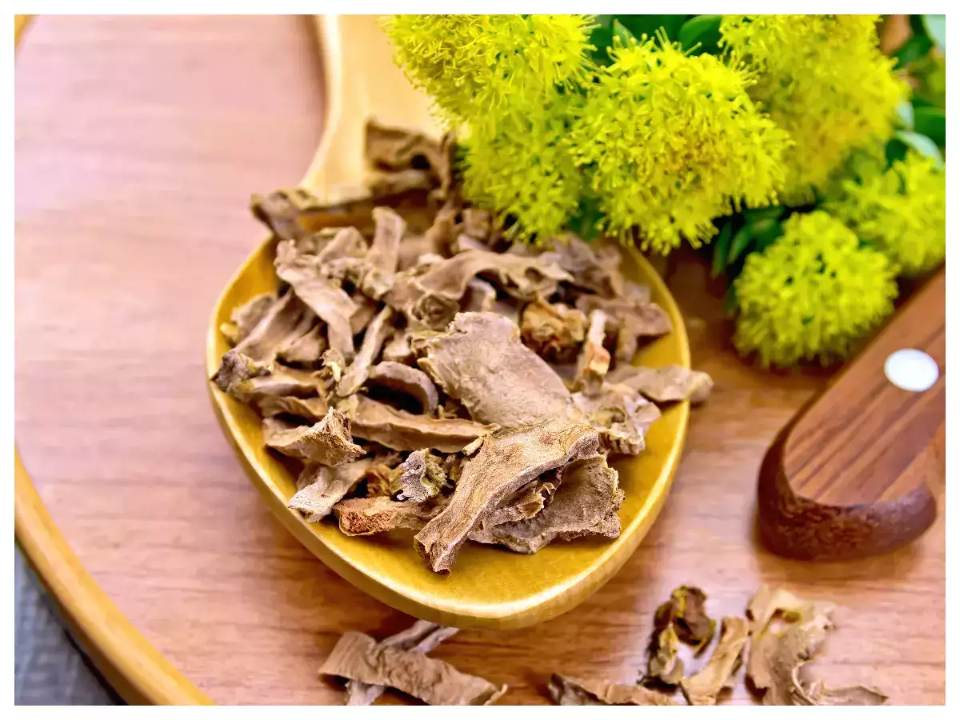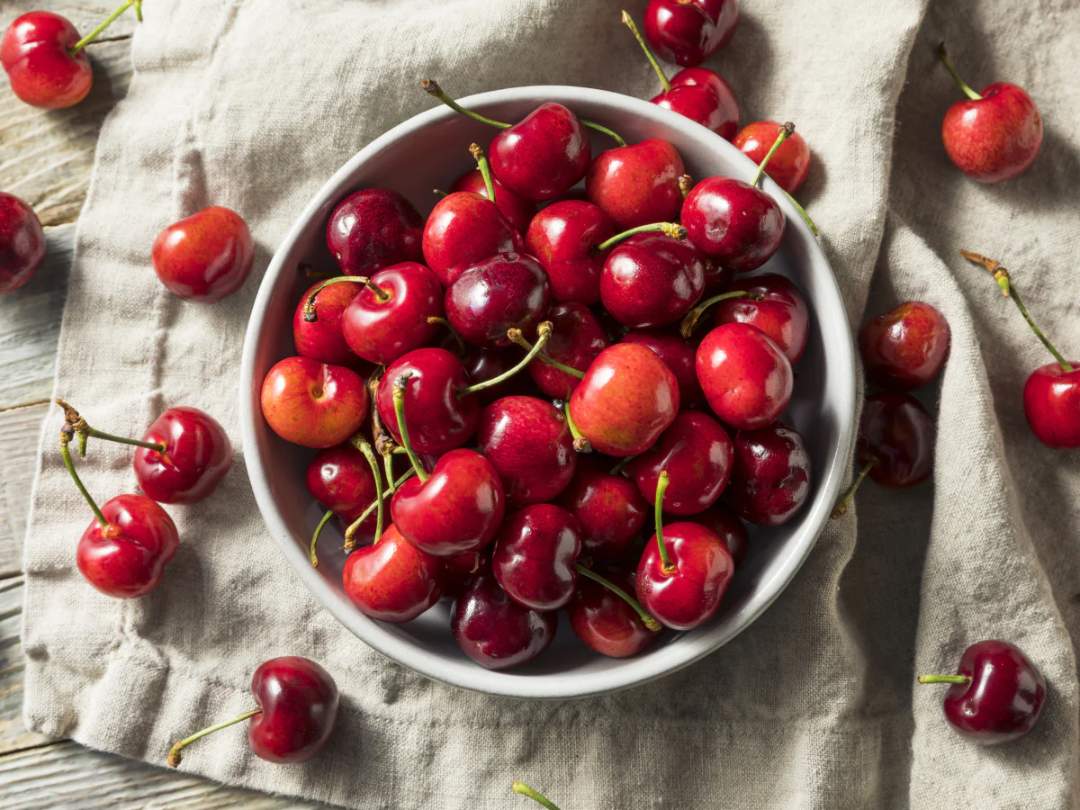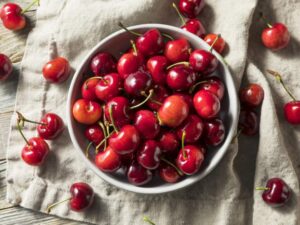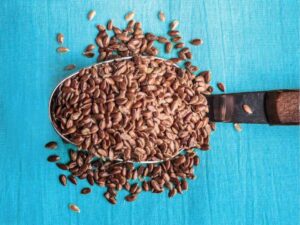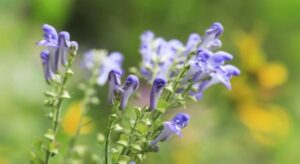The Discovery of Rhodiola: A Journey Through Time
The Secret of the Arctic Mountains
The discovery of Rhodiola, a powerful adaptogenic herb, is shrouded in mystery and uncertainty. Its origin story is as enigmatic and fascinating as the plant itself. According to ancient legends, the Vikings were the first to uncover the secrets of Rhodiola while exploring the harsh terrain of the Arctic mountains. They allegedly used it to boost their endurance, strength, and mental acuity during their long voyages.
A Botanical Enigma
But it wasn’t until the 18th century that Rhodiola was officially documented by the Swedish botanist Carl Linnaeus. He named it “Rhodiola rosea,” after its pinkish color and rose-like fragrance. However, it was not until the early 20th century that the herb gained the attention of the scientific community. Russian researchers began to investigate Rhodiola’s medicinal properties and its potential as a natural remedy for a range of ailments.
The Soviet Era of Rhodiola Research
During the Soviet era, Rhodiola research reached its peak. The Russian government invested heavily in the study of adaptogenic herbs, including Rhodiola, to help their soldiers, athletes, and cosmonauts perform at their best. Soviet scientists conducted numerous studies to determine the effects of Rhodiola on physical and mental performance, stress reduction, and immune system support. They discovered that Rhodiola could improve endurance, stamina, and reaction time while reducing fatigue, anxiety, and depression.
A Global Phenomenon
In the following decades, Rhodiola became increasingly popular worldwide, as its numerous health benefits became better known. It has been used as a natural remedy for stress, anxiety, depression, and insomnia. It has also been studied for its potential to improve cognitive function, mood, and athletic performance. Rhodiola supplements are now widely available in health food stores, pharmacies, and online retailers.
Unraveling the Mysteries of Rhodiola
Despite its popularity, Rhodiola remains a botanical enigma. Scientists are still trying to understand how it works, what its active compounds are, and how they interact with the body. Some studies suggest that Rhodiola works by modulating the levels of neurotransmitters such as dopamine, serotonin, and norepinephrine. Others propose that it stimulates the production of ATP, the body’s energy currency. Still, others suggest that Rhodiola works by reducing inflammation and oxidative stress, two processes that are associated with aging and disease.
The Future of Rhodiola Research
As the demand for natural remedies continues to grow, the future of Rhodiola research looks promising. Researchers are exploring new ways to harness its adaptogenic properties and develop new applications for it. For example, some studies suggest that Rhodiola could be used to treat certain types of cancer, improve heart health, and even slow down the aging process.
Conclusion
The discovery of Rhodiola is a testament to the power of exploration and curiosity. Its origin story is a reminder that even the most mysterious and elusive plants can hold valuable secrets. As we continue to unravel the mysteries of Rhodiola, we may uncover new ways to improve our physical and mental health, and unlock the full potential of this botanical wonder.

The Remarkable Health Benefits of Rhodiola: An In-Depth Exploration
Rhodiola is a powerful adaptogenic herb that has been used for centuries to improve physical and mental health. Its numerous health benefits have been studied extensively by scientists worldwide. In this article, we will explore the most compelling research on Rhodiola’s health benefits and how it can improve your overall well-being.
What is Rhodiola?
Rhodiola (Rhodiola rosea) is a perennial plant that grows in cold, mountainous regions of Asia and Europe. It has a long history of use in traditional medicine to treat a range of ailments, including fatigue, depression, anxiety, and insomnia. Rhodiola is an adaptogen, which means it can help the body cope with stress and maintain optimal function.
Rhodiola for Stress Relief
One of the most well-known benefits of Rhodiola is its ability to reduce stress and anxiety. Several studies have shown that Rhodiola can improve mood and reduce symptoms of depression and anxiety. A 2015 study published in the journal Phytomedicine found that Rhodiola supplementation reduced symptoms of anxiety and stress in patients with generalized anxiety disorder. Another study published in the journal Planta Medica found that Rhodiola supplementation reduced symptoms of depression in patients with mild to moderate depression.
Rhodiola for Cognitive Function
Rhodiola has also been shown to improve cognitive function, including memory, focus, and attention. A 2012 study published in the journal Phytomedicine found that Rhodiola improved cognitive function in patients with mild cognitive impairment. Another study published in the journal Neuropsychiatric Disease and Treatment found that Rhodiola improved cognitive function in patients with stress-related fatigue.
Rhodiola for Athletic Performance
Rhodiola has also been studied for its potential to improve athletic performance. A 2010 study published in the journal International Journal of Sport Nutrition and Exercise Metabolism found that Rhodiola supplementation improved endurance exercise performance in healthy young adults. Another study published in the journal Phytomedicine found that Rhodiola supplementation improved time to exhaustion during a treadmill test.
Rhodiola for Heart Health
Rhodiola has been studied for its potential to improve heart health. A 2015 study published in the journal Phytomedicine found that Rhodiola supplementation reduced blood pressure and heart rate in patients with mild to moderate hypertension. Another study published in the journal Food and Chemical Toxicology found that Rhodiola supplementation reduced total cholesterol levels in rats.
Rhodiola for Immune System Support
Rhodiola has also been studied for its potential to support the immune system. A 2004 study published in the journal Phytomedicine found that Rhodiola supplementation increased the activity of natural killer cells, which are an important part of the immune system. Another study published in the journal Planta Medica found that Rhodiola supplementation increased the production of T-cells, which are also important for immune system function.
Rhodiola for Insomnia
Rhodiola has also been studied for its potential to improve sleep quality and reduce insomnia. A 2012 study published in the journal Phytomedicine found that Rhodiola supplementation improved sleep quality in patients with chronic insomnia. Another study published in the journal Sleep and Breathing found that Rhodiola supplementation improved sleep quality in patients with obstructive sleep apnea.
Rhodiola for Weight Loss
Rhodiola has also been studied for its potential to aid in weight loss. A 2013 study published in the journal Evidence-Based Complementary and Alternative Medicine found that Rhodiola supplementation reduced body weight, BMI, and waist circumference in overweight and obese adults. Another study published in the journal Phytomedicine found that Rhodiola supplementation reduced body fat percentage in patients with mild obesity.
Rhodiola for Anti-Aging
Rhodiola has also been studied for its potential anti-aging effects. A 2011 study published in the journal BioFactors found that Rhodiola supplementation increased the lifespan of fruit flies. Another study published in the journal Rejuvenation Research found that Rhodiola extract increased the lifespan of mice by up to 24%.
Rhodiola for Cancer Prevention and Treatment
Rhodiola has also been studied for its potential to prevent and treat cancer. A 2016 study published in the journal Oncotarget found that Rhodiola extract inhibited the growth of breast cancer cells in vitro. Another study published in the journal Cancer Letters found that Rhodiola extract inhibited the growth of lung cancer cells in vitro.
How Does Rhodiola Work?
The exact mechanisms by which Rhodiola works are not fully understood. However, researchers have proposed several possible mechanisms. Rhodiola may work by modulating the levels of neurotransmitters such as dopamine, serotonin, and norepinephrine. It may also stimulate the production of ATP, the body’s energy currency. Additionally, Rhodiola may work by reducing inflammation and oxidative stress, two processes that are associated with aging and disease.
How to Take Rhodiola
Rhodiola supplements are widely available in health food stores, pharmacies, and online retailers. They are typically sold in capsule or tablet form, and the recommended dose is usually between 200 and 600 milligrams per day. However, the optimal dosage may vary depending on the individual and the specific health condition being treated. It is always best to consult with a healthcare provider before taking any new supplement.
The Nutritional Components and Core Ingredients of Rhodiola: A Comprehensive Guide
Rhodiola (Rhodiola rosea) is a powerful adaptogenic herb that has been used for centuries to promote physical and mental health. While its exact mechanisms of action are not fully understood, researchers have identified several key nutritional components and core ingredients that contribute to Rhodiola’s health benefits. In this article, we will explore these components and ingredients in depth, and how they work to improve overall well-being.
Key Nutritional Components of Rhodiola
Rhodiola contains a range of nutritional components, including flavonoids, phenols, and organic acids. Flavonoids are a class of antioxidants that help protect the body from free radicals, which can cause cellular damage and lead to chronic diseases. Phenols are another type of antioxidant that have been shown to have anti-inflammatory and neuroprotective effects. Organic acids are compounds that help regulate the body’s pH balance and support digestive health.
Core Ingredients of Rhodiola
Rhodiola contains several core ingredients that are responsible for its adaptogenic properties. These include rosavins, salidrosides, and tyrosol. Rosavins are a group of compounds that have been shown to improve cognitive function, reduce anxiety and depression, and enhance athletic performance. Salidrosides are another group of compounds that have been shown to improve cognitive function, reduce stress and anxiety, and support heart health. Tyrosol is a powerful antioxidant that has been shown to have anti-inflammatory and anti-cancer properties.
Rosavins
Rosavins are a group of compounds that are found in the root of the Rhodiola plant. They are typically extracted from the root using a process called high-performance liquid chromatography (HPLC). Rosavins have been shown to improve cognitive function, reduce anxiety and depression, and enhance athletic performance.
A 2015 study published in the journal Frontiers in Pharmacology found that Rhodiola extract containing high levels of rosavins improved cognitive function in patients with mild cognitive impairment. Another study published in the journal Phytomedicine found that Rhodiola extract containing high levels of rosavins reduced symptoms of depression in patients with mild to moderate depression.
Salidrosides
Salidrosides are a group of compounds that are also found in the root of the Rhodiola plant. They are typically extracted from the root using a process called HPLC. Salidrosides have been shown to improve cognitive function, reduce stress and anxiety, and support heart health.
A 2010 study published in the journal Phytomedicine found that Rhodiola extract containing high levels of salidrosides improved cognitive function in patients with stress-related fatigue. Another study published in the journal Food and Chemical Toxicology found that Rhodiola extract containing high levels of salidrosides reduced total cholesterol levels in rats.
Tyrosol
Tyrosol is a powerful antioxidant that is found in many plant-based foods, including olives, grapes, and Rhodiola. It has been shown to have anti-inflammatory and anti-cancer properties.
A 2015 study published in the journal Molecules found that Rhodiola extract containing high levels of tyrosol reduced inflammation and oxidative stress in rats with liver damage. Another study published in the journal Nutrients found that Rhodiola extract containing high levels of tyrosol had anti-cancer properties in vitro.
How to Choose a Quality Rhodiola Supplement
When choosing a Rhodiola supplement, it is important to look for one that contains high levels of rosavins, salidrosides, and tyrosol. Additionally, you should look for a supplement that has been standardized to contain a specific amount of these core ingredients, as this can ensure consistent quality and potency.
It is also important to look for a reputable brand that uses high-quality raw materials and follows good manufacturing practices. Look for a supplement that has been third-party tested for purity and potency, and that has a certificate of analysis available upon request.
Finally, be sure to follow the recommended dosage on the supplement label, and consult with a healthcare provider before taking any new supplement.
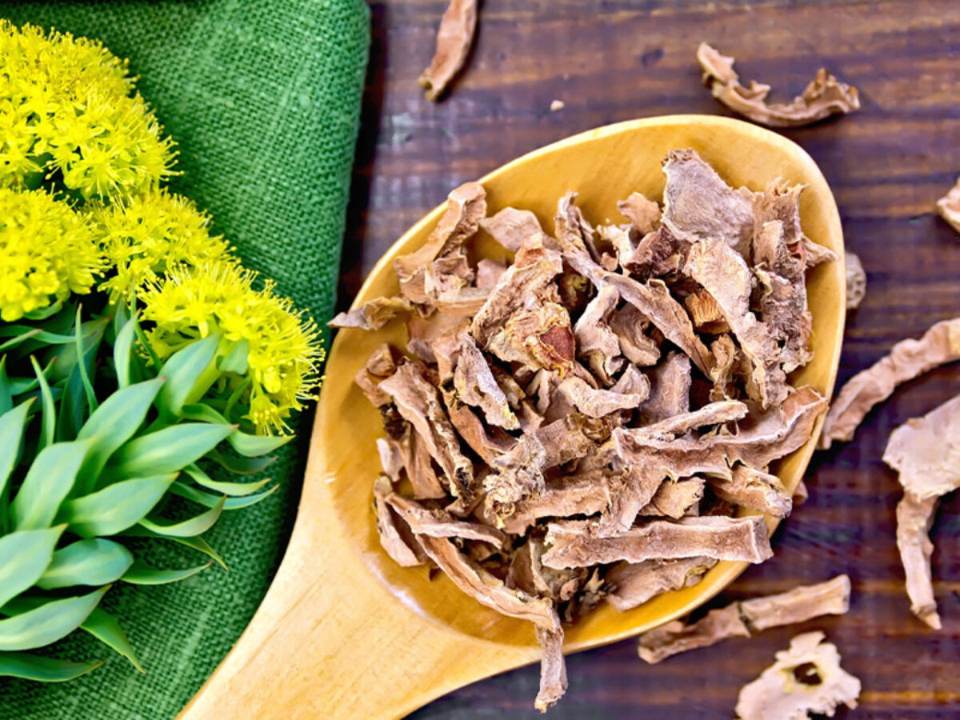
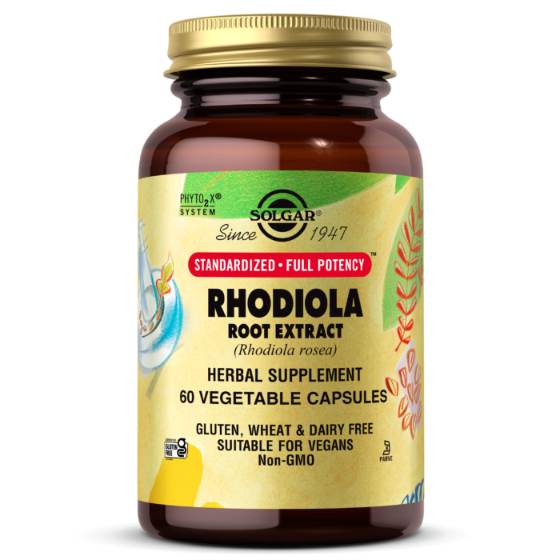
Methods for Consuming Rhodiola: A Comprehensive Guide
Capsules
Capsules are the most common and convenient method for consuming Rhodiola. Rhodiola supplements are widely available in health food stores, pharmacies, and online retailers. They are typically sold in capsule or tablet form, and the recommended dose is usually between 200 and 600 milligrams per day. However, the optimal dosage may vary depending on the individual and the specific health condition being treated.
When choosing a Rhodiola supplement, it is important to look for one that contains high levels of rosavins, salidrosides, and tyrosol, as these are the core ingredients responsible for Rhodiola’s adaptogenic properties. It is also important to look for a reputable brand that uses high-quality raw materials and follows good manufacturing practices.
Tinctures
Tinctures are liquid extracts of Rhodiola that are typically taken sublingually, or under the tongue. They are made by steeping Rhodiola in alcohol or glycerin for several weeks, and then straining the liquid. Tinctures can be more potent than capsules because they are absorbed directly into the bloodstream, bypassing the digestive system.
To take a Rhodiola tincture, simply place a few drops under the tongue and hold for 30 seconds to a minute before swallowing. The recommended dosage may vary depending on the specific tincture and the individual, so it is important to follow the instructions on the label or consult with a healthcare provider.
Teas
Rhodiola tea is another popular method for consuming Rhodiola. To make Rhodiola tea, simply steep dried Rhodiola root or powder in hot water for several minutes, strain, and enjoy. Rhodiola tea can be a convenient and enjoyable way to incorporate Rhodiola into your daily routine.
It is important to note that Rhodiola tea may be less potent than capsules or tinctures because the active compounds may be less concentrated. Additionally, the taste of Rhodiola tea may be bitter or earthy, so it may be helpful to sweeten with honey or other natural sweeteners.
Powder
Rhodiola powder is another option for consuming Rhodiola. It can be mixed into smoothies, juices, or other beverages, or added to foods such as yogurt or oatmeal. Rhodiola powder can be a convenient way to incorporate Rhodiola into your diet, especially if you prefer to avoid capsules or tinctures.
When choosing Rhodiola powder, it is important to look for a high-quality, organic product that has been third-party tested for purity and potency. The recommended dosage may vary depending on the specific powder and the individual, so it is important to follow the instructions on the label or consult with a healthcare provider.
Chewing the Root
In some traditional cultures, Rhodiola root is chewed to extract its beneficial compounds. Chewing the root can be a potent and direct way to consume Rhodiola, but it may not be the most convenient or palatable method for everyone.
If you choose to chew Rhodiola root, it is important to obtain high-quality, organic root from a reputable source. The recommended dosage may vary depending on the specific root and the individual, so it is important to consult with a healthcare provider before beginning this method of consumption.
Foods and Beverages
Rhodiola can also be incorporated into foods and beverages, such as smoothies, juices, and baked goods. Rhodiola root or powder can be added to these items for a convenient and enjoyable way to consume Rhodiola.
When incorporating Rhodiola into foods and beverages, it is important to be mindful of the dosage and to choose high-quality, organic products. Additionally, the taste of Rhodiola may be bitter or earthy, so it may be helpful to sweeten with honey or other natural sweeteners.
Topical Use
Rhodiola can also be used topically for skin health and as a natural remedy for acne. Rhodiola extract is available in some skincare products, such as serums, creams, and masks. It can also be added to homemade skincare recipes, such as facial toners or masks.
When using Rhodiola topically, it is important to choose high-quality, organic products and to follow the instructions on the label or recipe. It is also important to perform a patch test before using any new skincare product, to ensure that you are not allergic to any of the ingredients.
Potential Side Effects and When to Avoid Taking Rhodiola
Introduction
Rhodiola (Rhodiola rosea) is a powerful adaptogenic herb that offers numerous health benefits, including stress relief, cognitive function, heart health, and more. While Rhodiola is generally safe for most people, there are potential side effects and situations in which it should be avoided. In this article, we will explore the potential side effects of Rhodiola and when to avoid taking it.
Potential Side Effects
Rhodiola is generally considered safe when taken as directed. However, there are some potential side effects that may occur, especially if taken in high doses or for an extended period of time. These side effects may include:
- Dizziness
- Dry mouth
- Headache
- Insomnia
- Irritability
- Increased heart rate
- Nausea
- Restlessness
- Stomach upset
- Sweating
It is important to note that these side effects are typically mild and temporary, and usually resolve on their own once the dosage is adjusted or the supplement is discontinued. However, if you experience any severe or persistent side effects, it is important to stop taking Rhodiola and consult with a healthcare provider.
When to Avoid Taking Rhodiola
While Rhodiola is generally safe for most people, there are some situations in which it should be avoided. These include:
- Pregnancy and breastfeeding: There is not enough research to determine the safety of Rhodiola during pregnancy and breastfeeding. As a precaution, it is best to avoid Rhodiola during these times.
- Bipolar disorder: Rhodiola may worsen symptoms of bipolar disorder by stimulating the release of dopamine and norepinephrine. If you have bipolar disorder, it is important to consult with a healthcare provider before taking Rhodiola.
- Autoimmune disorders: Rhodiola may stimulate the immune system, which can worsen symptoms of autoimmune disorders such as rheumatoid arthritis, lupus, and multiple sclerosis. If you have an autoimmune disorder, it is important to consult with a healthcare provider before taking Rhodiola.
- Mental health conditions: Rhodiola may interact with certain medications used to treat mental health conditions, such as antidepressants and antipsychotics. If you have a mental health condition and are taking medication, it is important to consult with a healthcare provider before taking Rhodiola.
- Surgery: Rhodiola may increase the risk of bleeding and interfere with blood clotting. If you are scheduled for surgery, it is important to stop taking Rhodiola at least two weeks before the procedure.
Drug Interactions
Rhodiola may interact with certain medications, including:
- Antidepressants: Rhodiola may interact with antidepressants, such as selective serotonin reuptake inhibitors (SSRIs) and monoamine oxidase inhibitors (MAOIs), increasing the risk of serotonin syndrome.
- Blood thinners: Rhodiola may interfere with blood clotting and increase the risk of bleeding when taken with blood thinners such as warfarin.
- Diabetes medications: Rhodiola may lower blood sugar levels, and when taken with diabetes medications, it may increase the risk of hypoglycemia.
- Stimulants: Rhodiola may interact with stimulants, such as caffeine and amphetamines, increasing the risk of side effects such as restlessness and rapid heartbeat.
If you are taking any medication, it is important to consult with a healthcare provider before taking Rhodiola, to ensure that there are no potential interactions.
